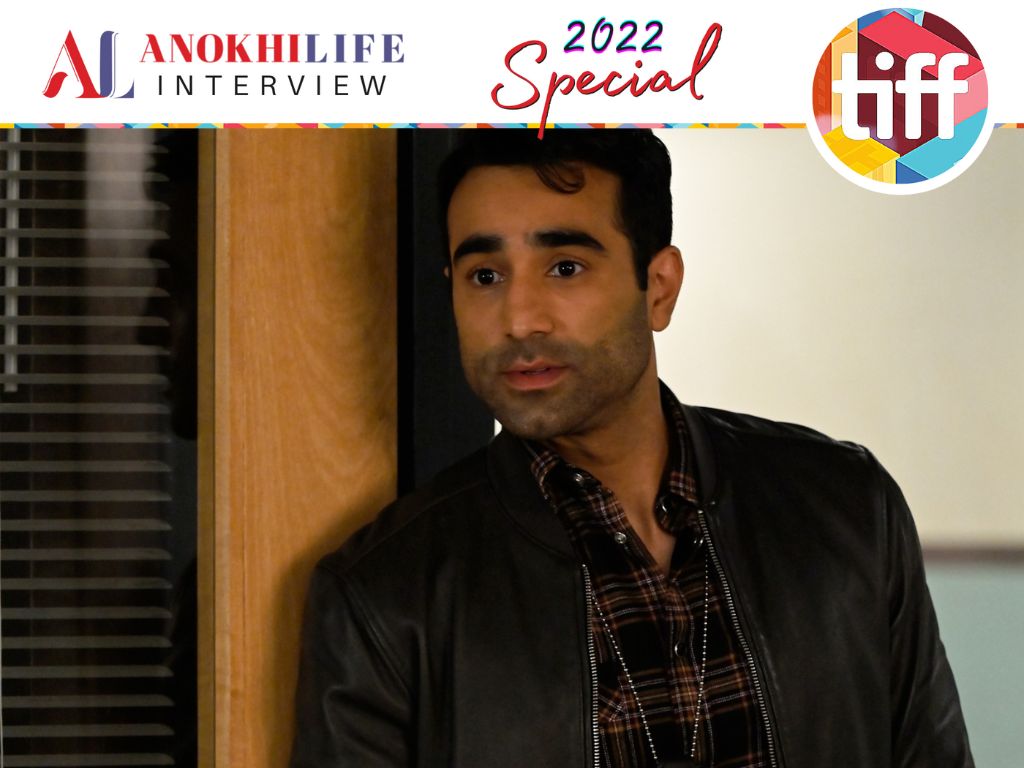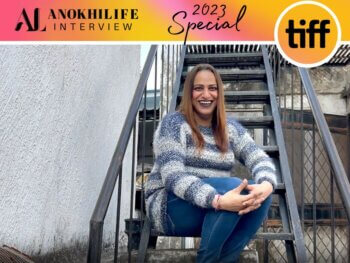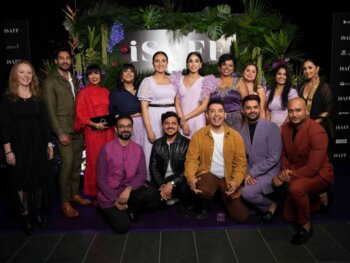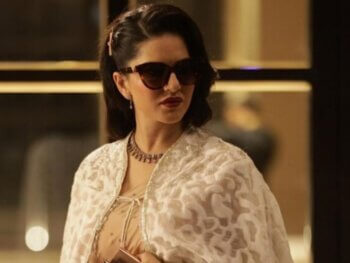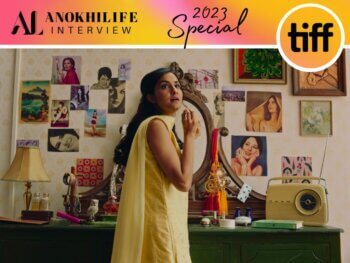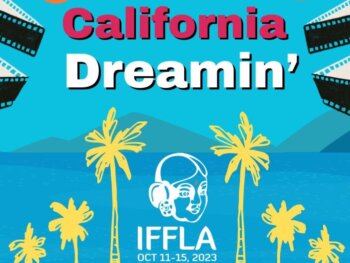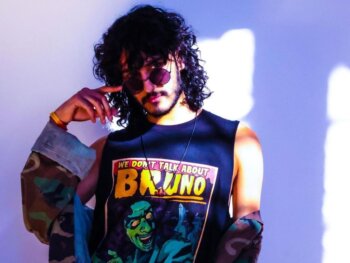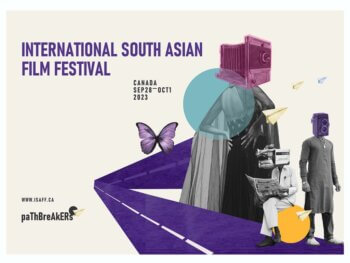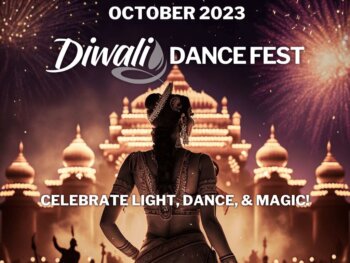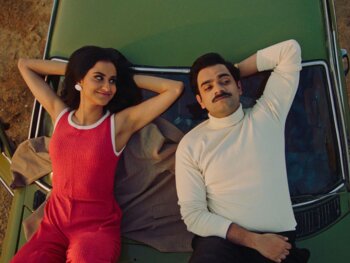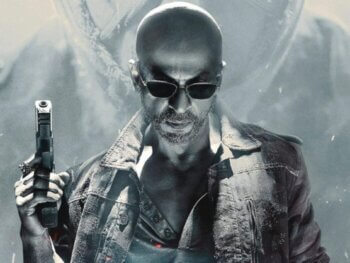Director Donald Shebib (Goin’ Down the Road) came to The Toronto International Film Festival this year with an absorbing crime drama set in the world of online dating, as a detective (Ashley Bryant) tries to unravel a murder case by going undercover on a phone-sex app frequented by the victim. Before long, she’s drawn into an intimate flirtation with a mysterious fellow user (Pretty Hard Cases star Al Mukadam), which forces her to engage with her own dark fantasies and long-buried personal traumas. During the fest, co-star Mukadam chatted with us about the experience of working with a genuine Canadian legend like Shebib, and using a typically pulpy genre to explore the complexities of human connection.
An ambitious police detective (Ashley Bryant) tasked with unravelling an inscrutable murder goes undercover on a dating app, where she connects with an alluring, enigmatic man (Al Mukadam) who might just be the killer. Along the way, the case gets a little too personal, as our troubled heroine is ensnared in a web of her own repressed desires and traumas, and compelled to face up to her dark past — specifically, her estranged father (Art Hindle). Debuting at TIFF this past September, Canadian cinema icon Donald Shebib (Heartaches) uses that potboiler premise to conduct a dark, enthralling character study, anchored by Bryant and Pretty Hard Cases alum Mukadam. Recently, the latter was kind enough to get on the phone with us and shine a light on Nightalk.
Matthew Currie: To start off with, how did you come to Nightalk?
Al Mukadam: It was a weird one in the sense that I was travelling with my family overseas, and I got an email from an old friend and “Don Shebib” was the subject [line] of the email. So I stopped everything and I read the email right away. Don Shebib is a legend in our country, and all over the world, really. He’s an old-school, O.G. legend, a maverick filmmaker from the ’70s, you know? His contemporaries are Francis Ford Coppola and Martin Scorsese; he’s friends with those guys. So that’s a huge draw right off the top. You trust him. He’s a maestro. That was it for me. After I knew that he was making the movie, I would do anything to be a part of it.
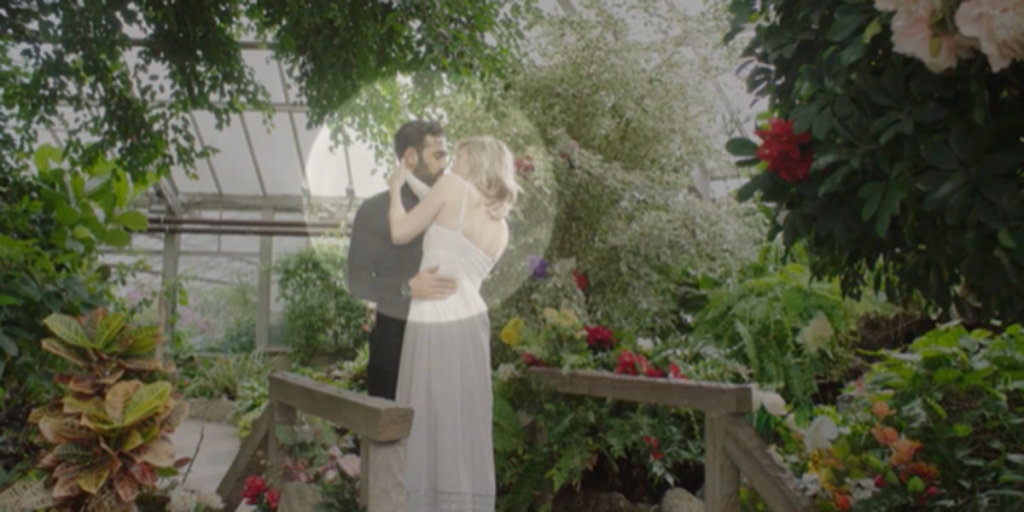
MC: On some level, this film seems to engage with the paradox of how social media technologies that were designed to bring us closer together are actually driving us apart.
AM: In today’s day and age of all the socials and the dating apps that are out there . . . it felt very Don Shebib in a ’70s, ’80s, ’90s throwback kind of thing with this phone chat idea. To update it to be this app was a very smart idea. And then for it to be about the specificity and the exclusivity of voice and a conversation over the phone, was very interesting and a new take, I thought. Because there is no FaceTime, there is no texting, there are no pictures, there’s just a voice. That’s how these two characters interact. They learn about each other, they learn about themselves, what they like, what they don’t like, and it’s all through these conversations. So yeah, that was all very interesting material to approach.
MC: The smartphone reality we all live in can be isolating in some respects, but it also, in a way, can foster deeper connection by removing the awkwardness of a face-to-face, in-person interaction that can prevent connection. There’s an interesting push-and-pull there.
AM: Totally, there are all these parallels. The safety blanket of the anonymity and the facelessness, and there is that safety net and those walls, but then there is this river that runs through it with the voice connecting them, the conversation and the tones and the pauses and the breathing, and the jokes that maybe fall flat and the vulnerability that reveals itself by not having to look at the person in the face. It was always that balance, which is really cool to play with in the script, and with the actor as well, Ashley Bryant.
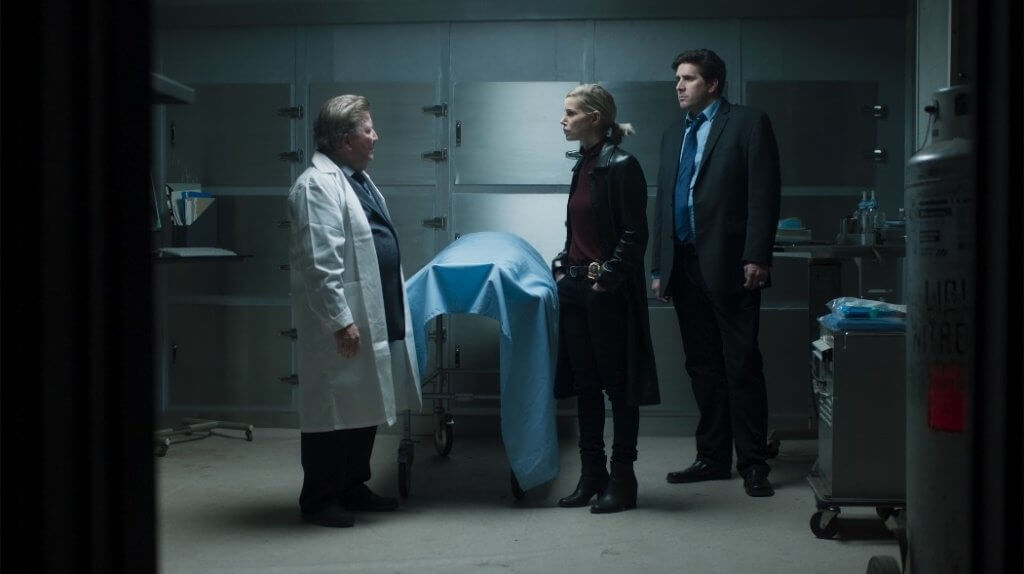
MC: I’m always interested in a film that uses a pulpy sort of genre for more than just thrills. The murder mystery that’s not really about the murder, the crime thriller that’s not really about the crime, but uses its pulpy premise as a way into a character study, to probe deeper into a truth about the human experience and the complexities of human interaction and connection . . .
AM: First of all, yeah, it is just a great way in as a form, as a genre, as a vehicle for the story. It is a jump-off point for the story, but also for Ashley Bryant’s character of Brenda, it illustrates where the character begins, which is in this very male-dominated police force where toughness is paramount, is part of the job. It hardens you. And yet, this is a person who is finding out who she really is and what it is that she really wants. And the conflict between those two worlds — who she has to be and who she wants to be — through this app and through meeting this character Tom [Mukadam], she does get to go through that journey. It makes life all the more dramatic for her character — still being the tough cop, but she’s able to drop the armour and let the hair down a little bit to allow this guy into her world. The key to the whole story is that she starts in the pulpy, hard, criminal world and it becomes something very different.
MC: Working with Donald, this legend, did you do everything you could to soak up as much film knowledge as you could?
AM: Totally. To work with him, to talk with him, there was no ego about it. Truly and honestly. He is as obsessed and as passionate a fanboy of storytelling and film as you’ll ever meet. He’s a walking encyclopedia about this stuff. That’s where his focus is and his world really is. All he cares about is plot and conflict and story and filmmaking, and it shows because it’s all he talks about. He doesn’t talk about himself, really. It’s about the work for him. So that’s the kind of thing I took away; he really cares, he really leans into it. It was really a beautiful thing to see a man who, by the way, is not that young a man. He’s an elderly man, he’s getting up there, he’s in his 80s, and yet to see him like a kid in a candy store — the first one there on set, the last one to leave, never sat down on set, really . . . one thing I did learn from him was, if you have passion in your life, when you have it and you see it and you are working within it, you will never get old. You just never will.
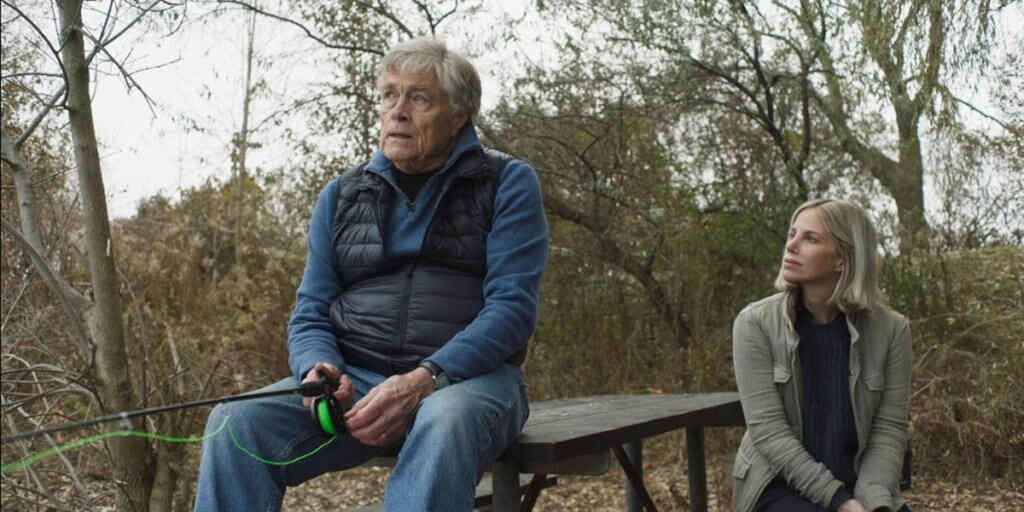
MC: Simply put, what was it about Tom that excited you?
AM: This character of Tom, first of all, had nothing to do with the ethnicity. I always like that. Riz Ahmed, in his [newspaper] op-ed piece, talked about the tiers for brown actors. Tier 1, being the lowest, is Terrorist No. 4; and then Tier 2 is Terrorist With a Conscience, a little nuance; and Tier 3, which is the most rarified tier, is just a guy — just a guy in a story that’s doing a thing. Tom was just a guy. But more than that, he was not relegated to a sidekick role. He was the leading-man, romantic love interest of the main character. That’s where I believe and I hope that my career is headed as I’m getting a little older; I feel primed and ready for those kinds of roles . . . We never even talked about [the character’s ethnicity] on set with Don, and that was the best part. He didn’t think twice about it. He said, “You’re perfect for the role. Let’s do it.”
Main Image Photo Credit: CBC
Matthew Currie
Author
A long-standing entertainment journalist, Currie is a graduate of the Professional Writing program at Toronto’s York University. He has spent the past number of years working as a freelancer for ANOKHI and for diverse publications such as Sharp, TV Week, CAA’s Westworld and BC Business. Currie ...


















































